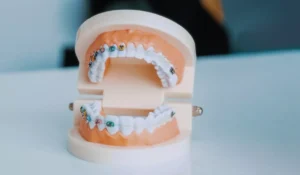Every parent wonders how turning 13 could transform their affable, amenable and active kid into a sullen, surly and selfish kid. The truth is that personality and behavior shifts occur rapidly during puberty, and often they tend to make teens shut off and shut themselves away.
On one hand, it’s exceedingly beneficial to give your teen privacy during this critical period of development. Coming out of childhood is difficult and scary; they are beginning to question their role in the world — who they are, what they want, etc. — and they need time and space to think about these issues on their own.
On the other hand, it isn’t healthy for your teen to be alone for exceedingly long stretches, like for an entire summer vacation. In fact, summer presents the perfect opportunity for your teen to experience more of the world, which might help them answer those ever-important questions more accurately. To parent your teen well during this trying time, you need to balance alone time with activity, which means you should talk to your teen about planning one of the following adventures this upcoming summer break.
Summer Jobs
According to the 20-year-long Youth Development Study sponsored by the National Institute of Health, part-time, summer employment is exceedingly beneficial for adolescents. The study follows teens through much of their adolescence and uses a multi discipline approach, to include psychology, sociology and economics, to determine the effects of teen employment on the individual and the community.
Some of the notable benefits summer jobs offer teens include:
- Experience with financial management. Aside from a meager weekly allowance, few kids have much exposure to handling their own money. Because a job promises income that is purely under their control, employed teens often feel more motivated to learn about systems of financial management, including savings accounts, credit cards, investment accounts, retirement accounts and more.
- Experience with job hunting. Looking for appropriate employment, filling out applications, undergoing the interview process and facing rejection are all experiences that can become easier with familiarity. Teens who have exposure to this process are less likely to fear it or make improper moves when the stakes are higher, i.e. after college.
- Respect for education. Teens with jobs are more likely to find greater motivation in their studies. This is because many are applying what they are learning to their employment, which makes their education more valuable. Thus, getting a job during summer vacation could send your teen back to school readier to learn than ever.
Summer Internships
To parents, “internship” sounds more prestigious than “summer job” because it is often more closely related to professional career fields that teens might pursue during and after college. Thus, enrolling in internships relatively early, during adolescents, provides exposure to these fields and ostensibly helps teens narrow down their interest in certain career paths.
While internships can certainly provide benefits, it should be noted that many internships, especially those targeting applicants under 18, are unpaid. That often means that these positions don’t provide much skilled labor, instead requiring teens to perform menial jobs like fetching coffee and organizing files. It’s important for your teen to find an internship that does offer educational value but that won’t result in burnout or otherwise waste your teen’s time.
Summer Classes
While school is the last thing on many teens’ minds once summer vacation starts, the truth is that enrolling in courses over the summer break could be exceedingly beneficial. A well-documented phenomenon among-st American youth is the so-called Summer Slide, where students lose between two and three months of education during the extended break from school. Theoretically, continuing to participate in educational endeavors should alleviate that loss and help your teen jump back into school once fall semester begins.
Unfortunately, there isn’t much research supporting this assumption. The few institutions that do require more extensive school work over the summer months have found success, but the data is generally insufficient and unclear. It’s safe to say that if your teen wants to take courses over the summer — either at their high school or from a community college — you should encourage it. At the very least, the classes might improve their academic standing and increase their credits over those of their peers, improving their college prospects.
Summer Trips
Summer vacations are mandatory for most families; they allow everyone to get out of the house and away from the regular routine. However, the typical family vacation isn’t necessarily ideal for the teen who is craving privacy. Especially if the destination and activities of your family outings are still influenced by having younger kids, teens might feel embarrassed, ignored, bored and other negative emotions if they are forced along on these trips.
Still, travel is important for the budding mind. Research has found that travel provides a number of benefits to physical and mental health and can broaden perspectives, enhance creativity and alter worldviews. Thus, you should consider letting your teen travel without the family — not alone and unsupervised, but perhaps on group mission trips with their peers and respected chaperones. Mission trips specifically allow teens to give back to the communities they visit, which does even more to influence the way they think and feel about the world.
Summer Sports
When teens lock themselves in their rooms for the summer, there is one thing you can be certain of: They aren’t getting enough exercise. Doctors encourage adolescents to get at least 60 minutes of vigorous physical activity every day, or at the very least three days per week. That physical activity should be relatively diverse, to include both muscle- and bone-strengthening activities as well as cardiovascular activity. These will help keep various bodily systems in shape as they finish maturing at the end of adolescence.
During the school year, gym class and seasonal sports can provide enough opportunity to keep your teen fit, but during the summer, physical engagement can drop off. To stop this, you should encourage your teen to participate in some kind of summer sport. It’s important that they choose their sport themselves, so you might allow them to try out several different activities before they settle on their favorite. As fitness gurus say: The best exercise is the exercise you will do.
During this developmental period of their lives, teens need space to think, feel and make decisions for themselves — but they should also be given the opportunity to experience more of the world around them through work, school, travel and more. You should talk to your teen about making summer plans now, so they don’t end up locked in their room and missing out on everything the world has to offer.



